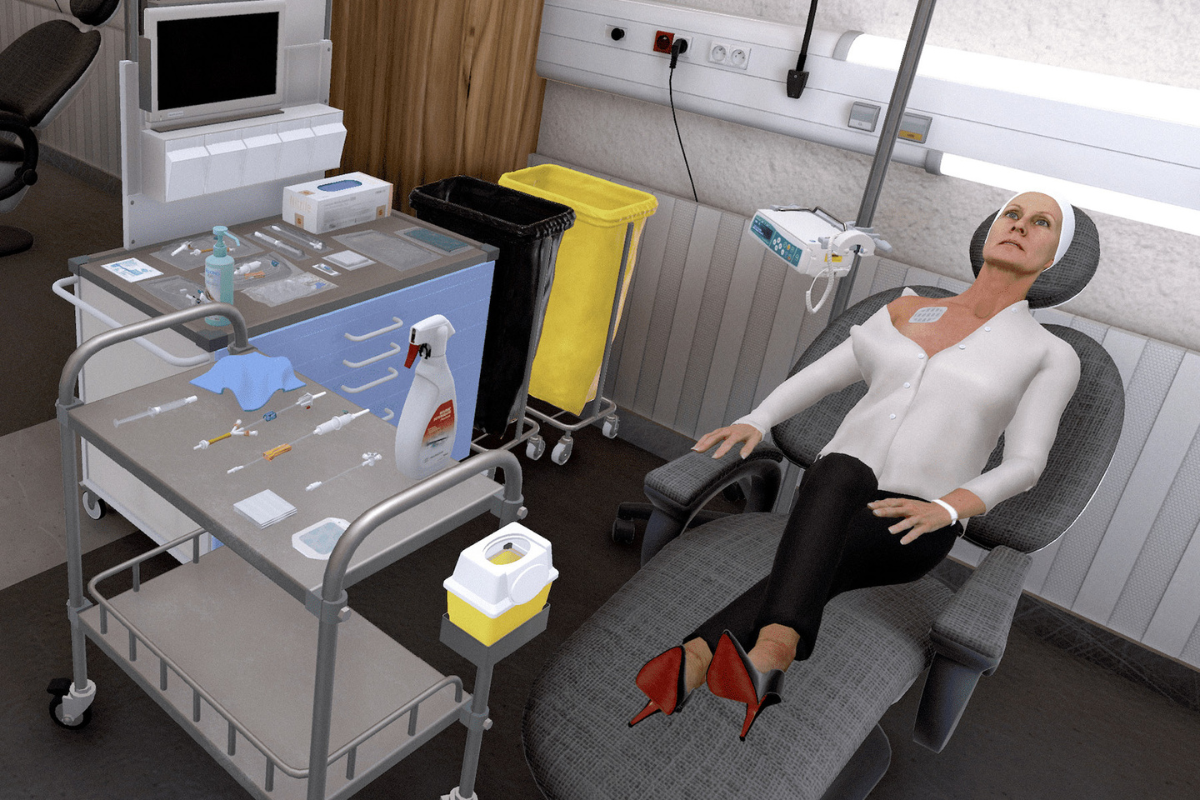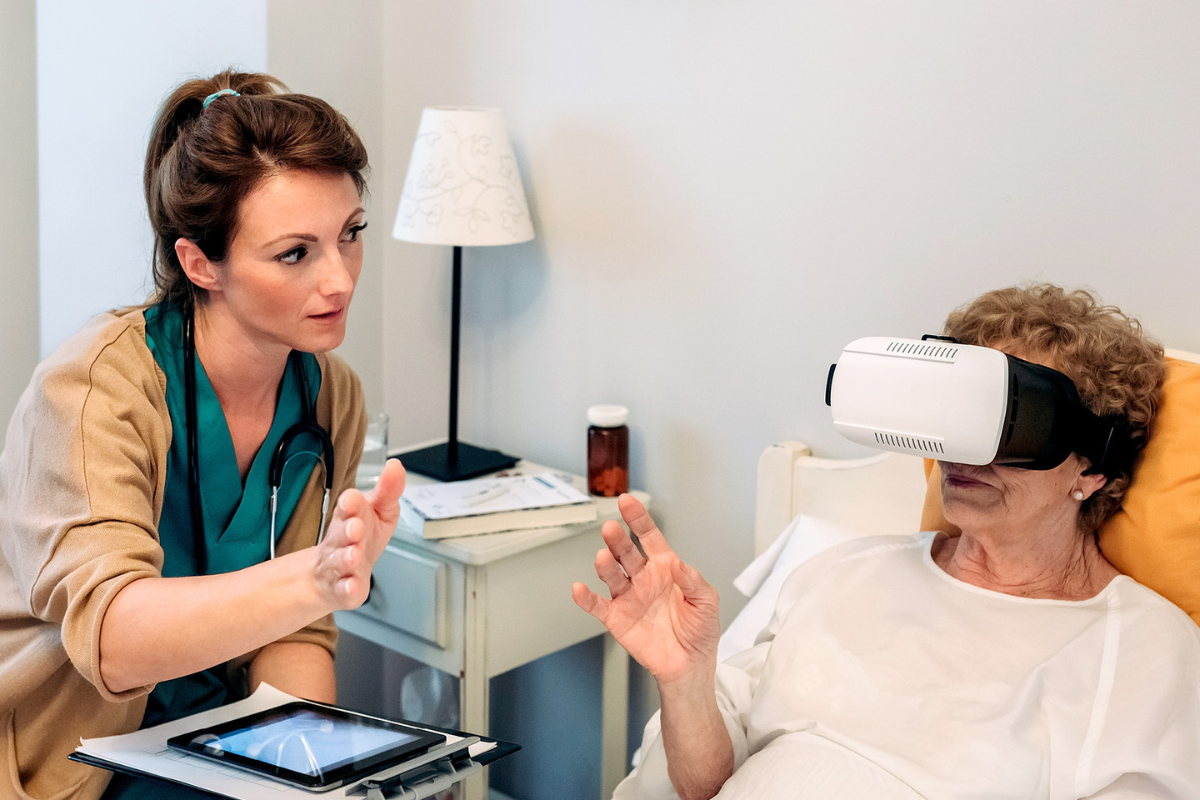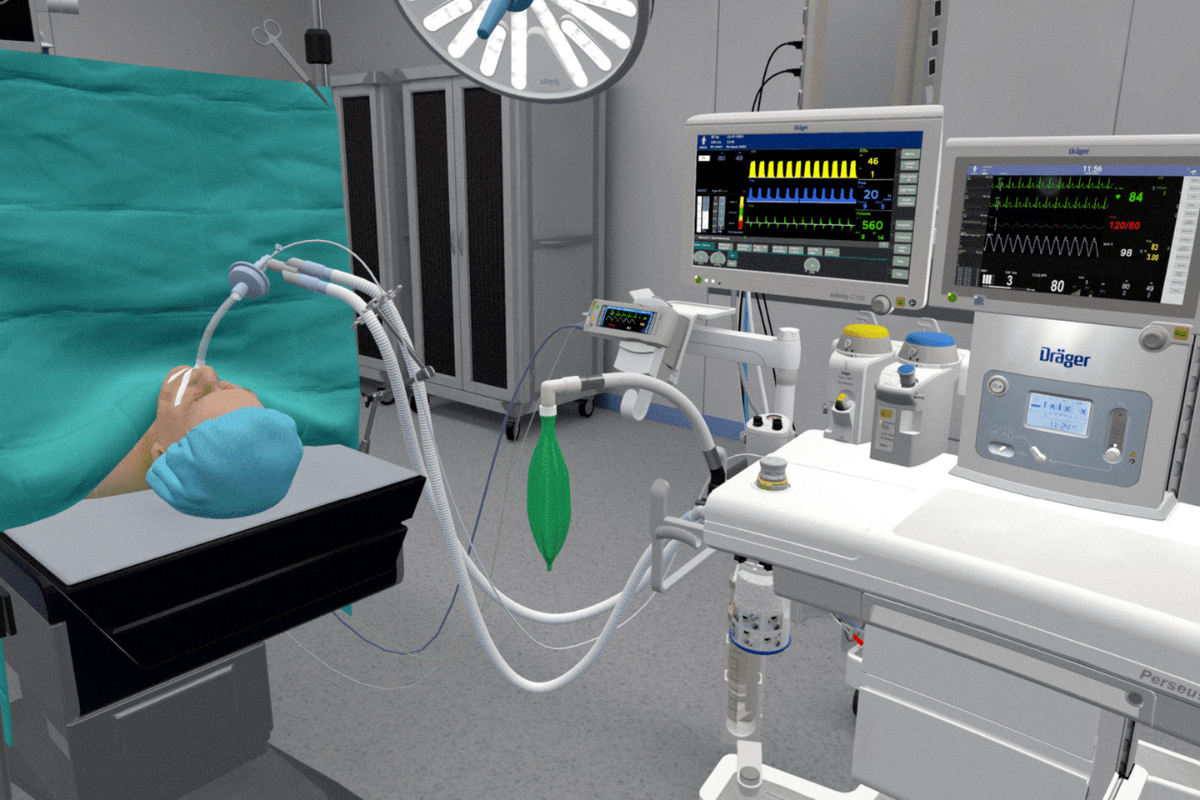Two of the greatest challenges facing surgical trainees, particularly in less-developed countries and rural areas, are the lack of access to technology and the lack of access to patients.
The emerging ‘mediverse’, which combines the metaverse and medical technologies, seeks to solve both of these problems, making new training tools available to trainees across the globe. This includes digital replicas of human anatomy, which can be accessed remotely and collaboratively.
One company making impressive strides within the mediverse is VirtualiSurg. This French health tech company’s flagship product is known as SurgiSim, a state-of-the-art virtual reality simulator designed to replicate real-life surgical scenarios.
“With VirtualiSurg, we are not only making a product, but instead we strive to offer a way of life – one that sets us up for the future by enhancing medical education with virtual reality.” – Nicolas Mignan
Using the simulator, a surgeon can explore a digital replica of the hospital where they work, from the lobby to the operating room. Operating on a digital replica of a patient’s anatomy, the surgeon holds physical surgical equipment linked to a virtual reality program and in this way, controls digital equipment inside SurgiSim, like specialized controllers for a surgery themed game.
By combining advanced haptic feedback with realistic visuals, the platform allows surgeons to practice and refine their skills in a risk-free, controlled environment. The system guides the surgeon through each procedure, warning of any mistakes that would be dangerous to a real-life patient, allowing the surgeon to improve.
Under visionary CEO Nicolas Mignan, VirtualiSurg has been spearheading a revolution in surgical training since 2017, bringing cutting-edge VR solutions to the medical community, carving out a corner of a blossoming sector that he calls the mediverse.
“With VirtualiSurg, we are not only making a product, but instead we strive to offer a way of life – one that sets us up for the future by enhancing medical education with virtual reality,” Mignan says.

The Genesis of VirtualiSurg
The idea for VirtualiSurg came to Mignan in an epiphany in his living room in 2017. He had spent his career as a Law Professor and HR Director at French universities, and he was surprised by what he saw among the medical faculty at some of these prestigious institutions.
“I was surprised to see that world-class surgical education was grounded in the same centuries-old dogma. Hands-on experience of human anatomy was quite literal, which means cadavers are still considered an essential pillar of medical education,” he recalls.
He saw a gap that he thought could be filled by virtual reality. Despite having a comfortable career, he started making plans for a new company.
Six years later, VirtualiSurg has earned six patents, raised US$6.57 million and opened six offices in Singapore, Montréal, São Paulo, Tokyo and its headquarters in Paris.
“We prioritized securing our technology and building progressively,” Mignan says. “We raised funds gradually with a logic of frugal innovation. Having little money raised comes with a duty to invest it in a way that is highly useful for society.”

Key Innovations
A key responsibility for Mignan as CEO of VirtualiSurg is promoting the advantages of virtual reality in general and of virtual reality medical training in particular.
The many proven advantages of training in virtual reality include upskilling significantly faster, gaining confidence and feeling more emotionally connected to the content learned,” he says.
Moreover, virtual reality technology gives the surgeon ‘anywhere, anytime’ accessibility to training and unlimited opportunities to practice.
“This greatly improves the way complex technical and essential soft skills are mastered and boosts productivity at a great scale,” Mignan says.
The company has put this into practice through the Infection Risk Prevention Team at the Georges Pompidou European Hospital in Paris, where VirtualiSurg’s extended reality technology is being incorporated into on-site training programs at a large scale.
“The nurses who trained in virtual reality reported greater confidence in applying their skills, and also enjoyed the experience as well as the personalized learning aspect, which directly helps to boost patient trust and care,” Mignan says.
“Transcending geographical limitations can democratize clinical know-how, allowing patients across the world to also benefit from high levels of care as a direct result.” – Nicolas Mignan
VirtualiSurg is also collaborating with major medical tech companies, such as Dräger, Johnson & Johnson, Medtronic and Terumo, to develop a spine surgery simulation that helps novice and intermediate surgeons learn new, minimally invasive techniques. These are preferred by patients and reduce risk.
SurgiSim technology also allows surgeons to train in a group, whether in the same room or remotely from multiple locations across the globe.
“Transcending geographical limitations can democratize clinical know-how, allowing patients across the world to also benefit from high levels of care as a direct result,” Mignan says.
“By learning through error and repetition, in a fully immersive environment, technical gestures and soft skills are mastered quicker and more innately, which can boost confidence and collective mastery, and in turn make procedures safer and accessible for even more patients.”

Major Growth Potential
In addition to doctors and patients, Mignan sees virtual reality medical training as a boon to investors. According to a 2022 report by PricewaterhouseCoopers, 51 percent of companies in the United States are either in the process of integrating virtual reality into their strategies, or they have already built virtual reality into at least one dedicated line of business.
A 2023 report from InsightAce Analytic predicts that the global metaverse market focused on the health and healthcare industry will be worth US$71.6 billion by 2030.
“Virtual reality has wider applications beyond gaming, and we are seeing more integrations in professional capacities, be it recreating real-world scenarios for training purposes or for complex product visualizations,” he says.
“In surgical training, virtual reality can boost proficiency in technical and soft skills, accelerate knowledge-transmission, while offering an enriching experience in an immersive virtual environment – exactly what VirtualiSurg offers.”
Other notable players in the mediverse include the Dubai-based Thumbay Group, which plans to launch the world’s first metaverse hospital, including a metaverse medical university and a virtual wellness domain.
“The mediverse is revolutionizing personalized medicine.” – Nicolas Mignan
Aimedis Avalon bills itself as the biggest hospital and healthcare space in the metaverse, providing a virtual space where doctors can hold consultations, examine patients and monitor them remotely.
Mignan’s optimism about the sector is catching on among clients and partners. VirtualiSurg recently launched a virtual simulation of Dräger’s Babyleo Incuwarmer, to support new parents and healthcare professionals in caring for premature babies.
“This latest innovation will support parents and healthcare professionals toward informed decision-making, awareness of potential health crises and capability of meticulous care, while learning the empathy necessary for these delicate medical situations,” Mignan says.
In the coming years, Mignan aims to oversee the creation of even more virtual twins and to make them commonplace training tools across the medical field. Eventually, patients will have the ability to be guided through a simulation of their upcoming procedures, which can help reduce stress.
“Possibilities for virtual surgeries are expanding, providing a more empathetic approach to caregiving in which patient wellbeing is at the forefront of decision-making,” Mignan says.
“The mediverse is revolutionizing personalized medicine.”







